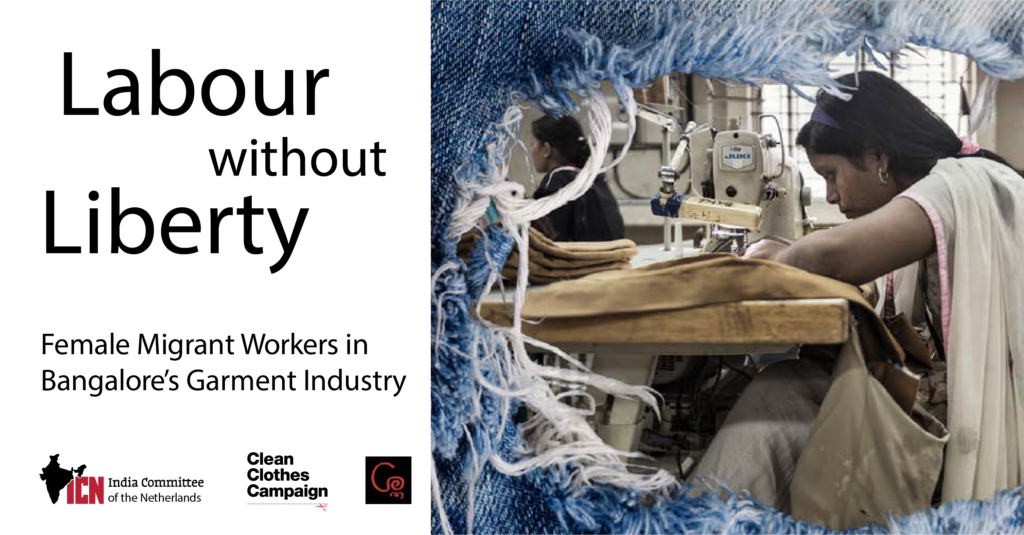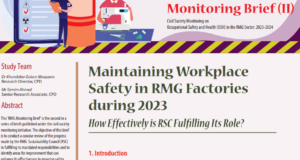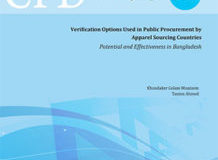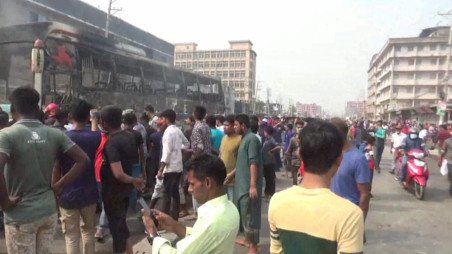Published in The Wire on January 29, 2018

Language barriers, poor living conditions, restrictions on movement and low pay, often below the minimum wage, are some of the problems plaguing migrant workers in Bengaluru’s garment factories, a new report states. Migrant workers, the study has found, are often treated worse than local workers in these factories.
In January 2016, the India Committee of the Netherlands (ICN), a human rights organisation, released a report titled ‘Unfree and Unfair’ focusing on the dismal housing conditions offered to migrant workers in garment factories. Two years later, they went back to see what things are like now – and despite promises made by the major international companies supplying from Bengaluru’s factories in question, not much seems to have changed.
This year’s study, conducted by the ICN in collaboration with the Garment Labour Union, Bangalore and titled ‘Labour Without Liberty’, was based on interviews with 63 female workers at three companies manufacturing clothes in Bengaluru. The companies were suppliers for brands including Abercrombie & Fitch, Benetton, C&A, Columbia Sportswear, Decathlon, Gap (Old Navy and Banana Republic), H&M, Levi Strauss and Co. (Levi), Marks & Spencer (M&S) and PVH (Tommy Hilfiger and Calvin Klein).
Most of the long-distance migrants working at the factories, who use the hostel accommodation provided, came from Odisha and Jharkhand, the study found. The migrant workers also belonged to marginalised sections of society. “While as many as 33 of the 42 migrants interviewed at the three factories belong to Scheduled Tribes, 5 belong to Scheduled Castes and 2 to the Other Backward Classes category,” the report says.
The report doesn’t identify the three companies because it wants to raise systemic issues rather than point fingers, it says, and things are similar in other companies as well.
False promises
A large majority of the migrant workers in the sample were trained for three months in their own village or nearby, under the Narendra Modi government’s ‘Skill India’ mission. The factories recruit through agents, who often know the worker of her family from before. However, according to what several migrant workers told the researchers, what the agents tell them is often quite different from what actually happens once they get to Bengaluru – the pay is less and living costs are higher. Most agents say that food and accommodation will be covered by the company. But of the three companies studied, only two provided free accommodation and none provided free food.
Between hostel-related deductions, provident fund payments and deductions for being absent, many migrant workers weren’t sure what their actual wage was supposed to be and said that they received different amounts in different months, according to the study. “They [the agents] said the work was easy in the readymade garment factories in Bangalore, the hostel and food were free of cost, and the wages would be INR 7,000 (€ 91.51), but I received only INR 5,000 (€ 65.36),” a worker was quoted as saying. In contrast, the payment for local workers is more stable and often higher – more than the minimum wage, the study found. Most migrant workers also do not have contracts or other documentation to prove their employment. “…local workers have far more access to legal documentation, in the form of written contracts and pay slips, than migrant workers. Out of 21 local workers, 11 had signed contracts and 7 possess copies, while only 6 out of 21 migrants signed a contract and none of them possessed copies of the same.”
In addition to the work being harder than what the agents suggest – with very large daily targets that often spillover onto the next day or increase working hours – migrant workers reported that they had a hard time because they can’t speak Kannada and their supervisors often can’t speak Hindi. “Migrants are constantly pushed to work faster and are often confused by instructions to stitch in different ways. This slows them down, inviting more verbal abuse. Errors invite rebuke; the mistake only becomes clear when the supervisor is able to explain in Hindi. At other times, migrants remain in the dark about where they have gone wrong,” the report says on the situation in one of the factories. The local workers from that factory interviewed also agreed that migrant workers are treated worse, and often called abusive names such as ‘donkey’, according to the ICN study.
No freedom of movement
One of the most shocking revelations from the 2016 ICN report was the restrictions put by factory-owned hostels on workers’ mobility. This year’s report is no different. The women said they are not allowed to go out on weekdays; at one of the companies the women reported that a factory staff member escorted them from work to the hostel. They were allowed out only on Sunday and that too only for a few hours, which went in buying groceries and other necessities. There was no time for leisure and entertainment, and only one of the three hostels had a TV that the women could watch, according to the report. The use of mobile phones in the hostel is also restricted to certain times.
Sanitation facilitates at the hostels are also below par and the dorms are cramped. However, the migrant workers say they prefer to stay there as they can save money and also because they were told by the agents and their wardens that it will not be safe for them to live elsewhere. Not knowing a local language is also cited as an impediment.
After the release of ‘Unfree and Unfair’, C&A, H&M and Inditex said they were creating a joint action plan to provide better conditions to workers in Bengaluru and review the allegations of curfew. “Based on the reviews of C&A and H&M to the current report, research was conducted and meetings were held, but concrete improvements in the situation of migrant workers have yet to be achieved. Almost two years after the findings of Unfree and Unfair were shared, plans are still being developed,” this year’s report says. And on the ground, according to the findings, things remain much the same.
Except Abercrombie & Fitch, all the brands named in this year’s report have responded, expressing surprise. Most said that their suppliers had claimed not to own any hostels. In their Codes of Conduct, most of these companies understand ‘migrant’ to mean only foreign migrants. Separate regulations that are properly enforced are needed on internal migrants too, the report says, from both the government and the companies.
 CPD RMG Study Stitching a better future for Bangladesh
CPD RMG Study Stitching a better future for Bangladesh



